Buying in bulk and doing big-batch meal prep won't save you time or money if you can't find anything in your freezer! Follow these tricks to keep it organized for good.
6 Genius Tricks to Keep Your Freezer Organized
When you need food on the table fast, a freezer full of pre-prepped foods is a busy cook’s secret weapon. (Check out our 150 best freezer-friendly meals.) These tried-and-true tips will keep your freezer in tip-top shape—and keep that bag of frozen peas from falling on the floor again.
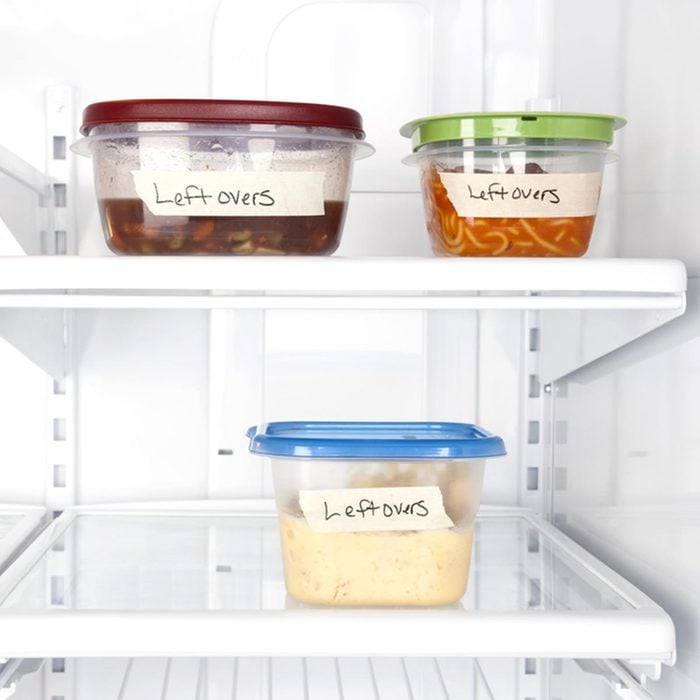
Label everything
Keep a marker and freezer labels handy. Date each container and label its contents…even if you can see what’s inside (so you won’t have to guess how long something’s been frozen). Here’s a nifty guide for how long your foods will last.
Pro tip: Use different color markers for different types of food—poultry, seafood, sauces, so you can find what you need at a quick glance.
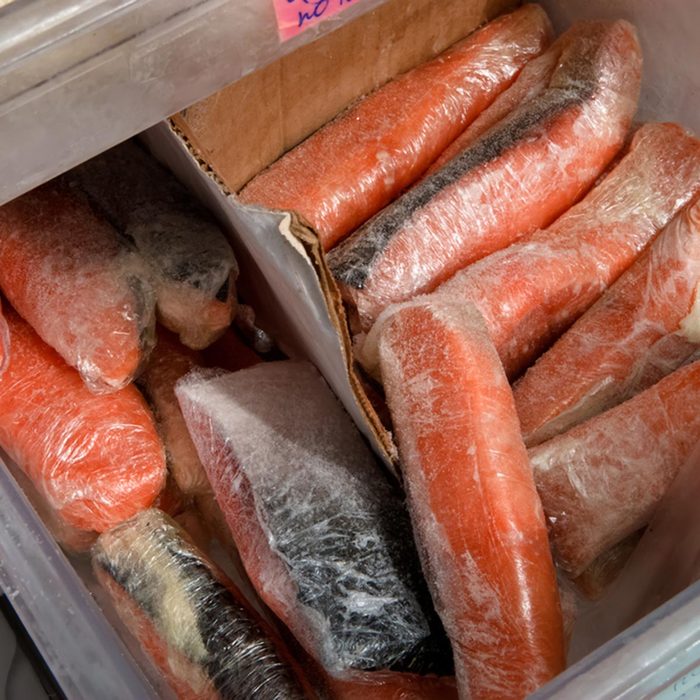
Wrap it up
This is especially important for meat. Tightly wrap meats in plastic wrap, then in heavy-duty foil or freezer paper, using freezer tape to seal if necessary. For other foods, use durable, leakproof containers or freezer bags sealed tightly. Press to remove all air. Keep in mind that a pound of bacon or an entire batch of cookie dough can be too much to thaw at once. Tightly seal small amounts separately; store together in a large container. Wondering if you can freeze ham? Here’s your answer.
Pro tip: Store raw meats on the bottom shelf to minimize the potential for contamination.
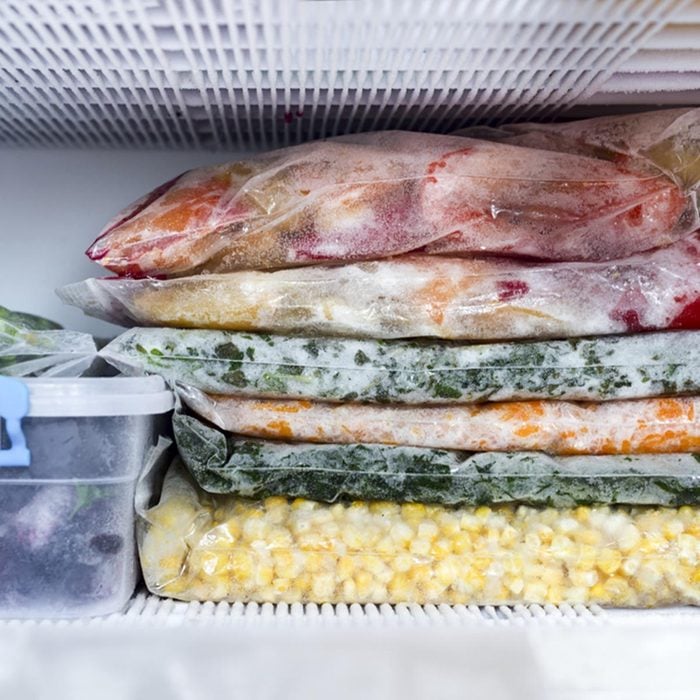
Pack it flat
Freeze foods in a single layer, and stack them after they’re frozen.
Pro tip: Transfer hot foods to a shallow pan or several small, shallow containers. Or place the pan in a bowl of ice water. Stir frequently so foods cool faster.
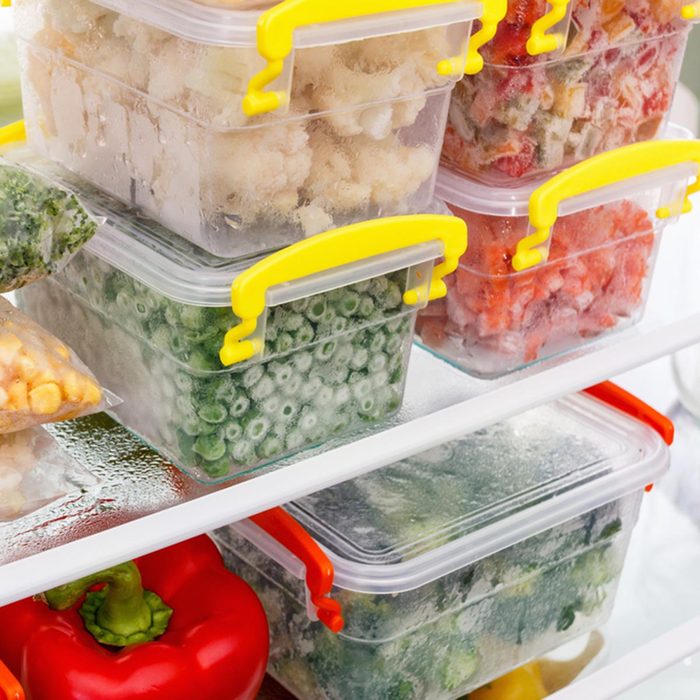
Keep like items together
Divide the freezer into zones, with areas for veggies, breads, meats, etc., so you always know where to look.
Pro tip: If you have four packages of frozen berries, put them all into one larger plastic bag or an inexpensive plastic basket, then label. Learn how to freeze fresh fruit.
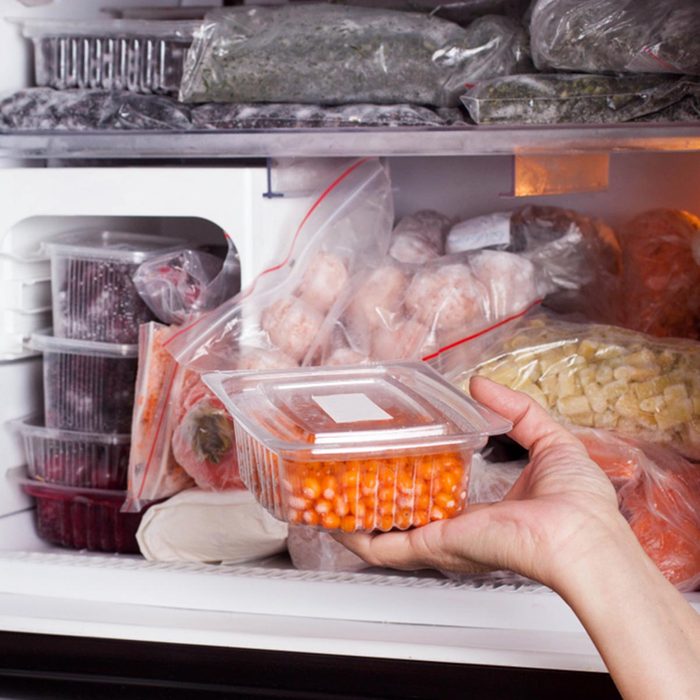
Follow a plan
One of my favorite culinary mantras—First In, First Out (aka FIFO)—is a simple practice commonly used in restaurants, grocery stores and food service. It means you use the oldest foods first to ensure timely usage and less waste.
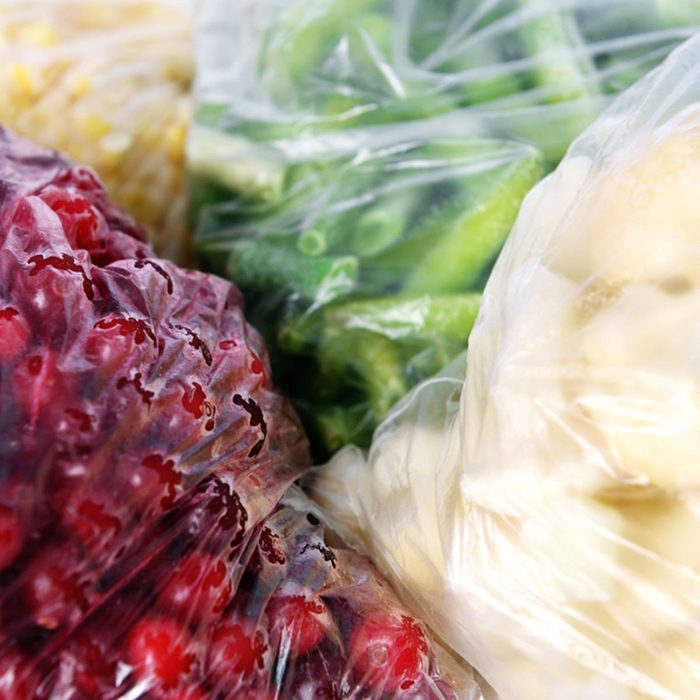
Do monthly checkups
Take a minute or two each month to get acquainted with what’s in there. Reshuffle items, throw out food that’s been frozen too long or plan to use forgotten treasures, such as the stew your neighbor offered a month ago.
Want to make the most of everyday ingredients? Learn why it’s safe to eat food past its expiration date.
